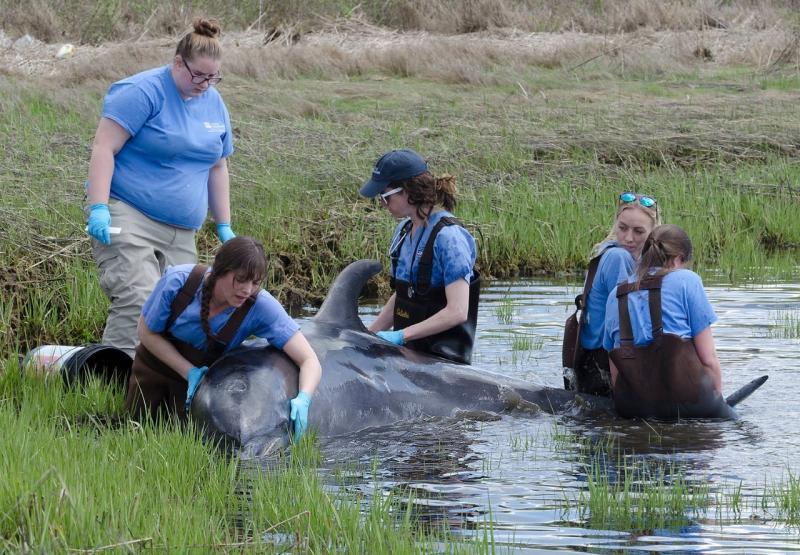
NOAA awards more than $3.7m in grants to marine mammal health and emergency response partners
by NOAA Fisheries 2 Oct 2022 17:49 UTC

A stranded bottlenose dolphin is examined by the marine rescue team from Mystic Aquarium © Richard W Dionne Jr/Mystic Aquarium
NOAA awards more than $3.7 million in grants to marine mammal health and emergency response partners in 20 states and one tribe for Fiscal Year 2022.
NOAA Fisheries is awarding 49 grants totaling more than $3.7 million to our partners in 20 states and one tribe. Recipients are from the Marine Mammal Stranding and Entanglement Response Networks, including collaborators specializing in marine mammal health. These grants support a core mission of NOAA Fisheries: the conservation and recovery of protected marine species. They help improve marine mammal stranding response and investigation capabilities nationwide, and support the goals of Marine Mammal Health and Stranding Response Program.
This year's funding supports Stranding Network partner activities that include:
- Recovery and treatment (i.e., rehabilitation) of stranded marine mammals
- Data collection from live and dead stranded and/or entangled marine mammals for scientific research regarding marine mammal health
- Collaborative services that help Stranding Network organizations collect data and analyze samples
- Facility operations that are directly related to these purposes
Since the John H. Prescott Grant program was established in 2000, NOAA Fisheries has awarded $71.2 million to partners. Our grant recipient partners have leveraged an additional $29.8 million. Together we have built a strong network of more than 120 trained and professional responders, and responded to more than 100,000 stranded marine mammals. Additional awards have funded marine mammal entanglement response and investigations into marine mammal health including diagnostics and scientific research.
"The marine mammal Stranding Network—in their response to, and rehabilitation of, stranded animals—obtain valuable information that improves our understanding of the health of marine mammals and the changing environment in which they live," said Kim Damon-Randall, Director of the NOAA Fisheries Office of Protected Resources.
For the 2023 grants cycle, NOAA Fisheries is currently accepting applications from eligible members of the marine mammal health community (Stranding Network, Entanglement Response Network, and authorized collaborators) until October 12, 2022.